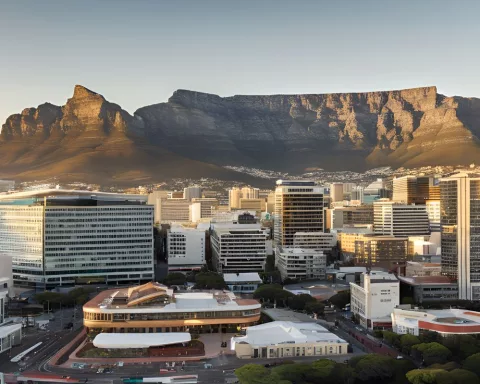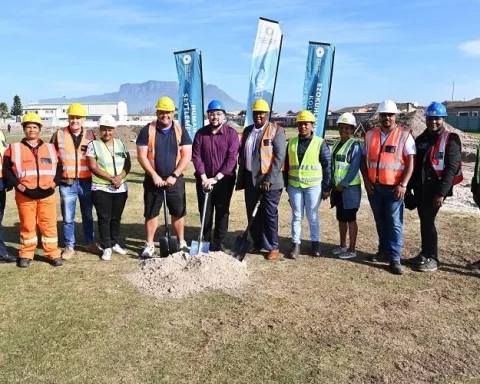The Western Cape region of South Africa is experiencing a disturbing increase in homicides, primarily concentrated within Law Enforcement Advancement Plan (LEAP) deployment zones. While some areas have seen a decrease in murder rates, others have reported significant increases. The Western Cape Government is investing in proactive solutions, including job creation and data-led, evidence-based approaches to policing, to address the root causes of crime and combat the growing menace of violent crime.
What is the current state of homicide in South Africa’s Western Cape Region?
The Western Cape region has seen a 10.9% increase in the number of murders between July and September 2023, with the spike primarily concentrated within Law Enforcement Advancement Plan (LEAP) deployment zones. The impact of law enforcement within these zones shows a mixed picture, with some areas reporting decreases and others experiencing startling increases in murder rates. The Western Cape Government is investing in proactive solutions to address the root causes of crime, including job creation and data-led, evidence-based approaches to policing.
A Disturbing Increase in Murder Cases
The Western Cape region, nestled in the heart of South Africa, is currently grappling with a disturbing spike in homicide cases. A recent study demonstrates a 10.9% uptick in the number of murders between July and September 2023, totaling to 1,164 murders compared to 1,050 during the same timeframe in the previous year.
A closer look reveals that this surge in violent crime is primarily concentrated within the Law Enforcement Advancement Plan (LEAP) deployment zones, including Delft, Gugulethu, Harare, among others. LEAP is a strategic mission specially designed to target high-crime areas with an intention to combat the escalating menace. However, an unfortunate 18.6% escalation in murder cases have been reported within these zones, with 649 murders compared to 547 in the previous year.
Nevertheless, when we examine the LEAP areas in isolation, the overall homicide rate in the Western Cape demonstrates a less significant rise of 2.4%. Despite being relatively moderate, this increase remains a cause for concern.
Disparate Effects of Law Enforcement in LEAP Zones
Interestingly, the impact of law enforcement within the LEAP-designated zones shows a mixed picture. Three areas – Kraaifontein, Nyanga, and Philippi East – have reported decreases in the incidence of murders by 11.1%, 11.3%, and 14.8%, respectively. The reasons behind this positive trend are manifold, but the strategic role played by LEAP officers is undoubtedly significant.
Conversely, several regions within LEAP deployment zones have experienced startling increases in murder rates. From Bishop Lavis, which saw an astounding 192.9% increase, to Khayelitsha with a more modest yet significant 2.1% rise, the seriousness of the situation is unambiguous.
The Western Cape Government (WCG) has pinpointed a few factors contributing to this disheartening trend, such as a violent mini-bus taxi strike in August 2023, mass murders in Gugulethu, and various disputes contributing to 33% of total murders. Alarmingly, constant gang-related homicides, accounting for 78% of such murders nationwide, persist as a major worry.
A Nationwide Concern and The Way Forward
Expanding the scope of this analysis, the latest statistics from the South African Police Service (SAPS) reveals that the murder rates across South Africa are on the rise, with an overall increase of 9.2%, totaling to 27,494 cases. In the Western Cape region, the number of murders for the 2022/23 fiscal year rose by 1% to 4,150.
Western Cape Premier Alan Winde expressed his apprehension, saying, “The latest figures are disheartening and cause for concern. They underscore the need for us to redouble our efforts and enhance our strategies to more effectively combat violent crime”. He emphasized the necessity for improved coordination with SAPS, municipal law enforcement, and community-based organizations, advocating for a data-led, evidence-based approach to policing.
Noting the apparent shortcomings of the existing national policing model, Winde underscored the crippling effect of chronic under-resourcing on their initial successes in reducing murders. In response, the WCG is heavily investing in proactive solutions to address the root causes of crime.
Winde is of the firm belief that job creation is a critical component in uplifting communities, alleviating poverty, and diverting at-risk youth from crime. The administration is also harnessing health data to inform the allocation of health resources in response to violent crime. The integration of health data with crime statistics and other information provides invaluable insights into crime trends.
The Western Cape region, armed with a blend of targeted law enforcement, socio-economic upliftment, and evidence-based strategies, is hopeful of reversing the growing menace of violent crime.
1. What is the current state of homicide in South Africa’s Western Cape Region?
The Western Cape region has seen a 10.9% increase in the number of murders between July and September 2023, with the spike primarily concentrated within Law Enforcement Advancement Plan (LEAP) deployment zones. The impact of law enforcement within these zones shows a mixed picture, with some areas reporting decreases and others experiencing startling increases in murder rates.
2. What is the Law Enforcement Advancement Plan (LEAP)?
LEAP is a strategic mission specially designed to target high-crime areas with an intention to combat the escalating menace of violent crime.
3. What are the factors contributing to the increase in homicide rates in the Western Cape Region?
According to the Western Cape Government, factors contributing to the increase in homicide rates include a violent mini-bus taxi strike in August 2023, mass murders in Gugulethu, various disputes, and constant gang-related homicides, accounting for 78% of such murders nationwide.
4. What is the approach of the Western Cape Government to address the root causes of crime?
The Western Cape government is investing in proactive solutions to address the root causes of crime, including job creation and data-led, evidence-based approaches to policing. The administration is also harnessing health data to inform the allocation of health resources in response to violent crime.
5. What is the impact of law enforcement within the LEAP-designated zones?
The impact of law enforcement within the LEAP-designated zones shows a mixed picture. Three areas – Kraaifontein, Nyanga, and Philippi East – have reported decreases in the incidence of murders by 11.1%, 11.3%, and 14.8%, respectively. Conversely, several regions within LEAP deployment zones have experienced startling increases in murder rates.
6. What is the nationwide concern regarding the rise in homicide rates in South Africa?
The latest statistics from the South African Police Service (SAPS) reveal that the murder rates across South Africa are on the rise, with an overall increase of 9.2%, totaling to 27,494 cases. The Western Cape region, in particular, has seen a 1% rise in the number of murders for the 2022/23 fiscal year.












